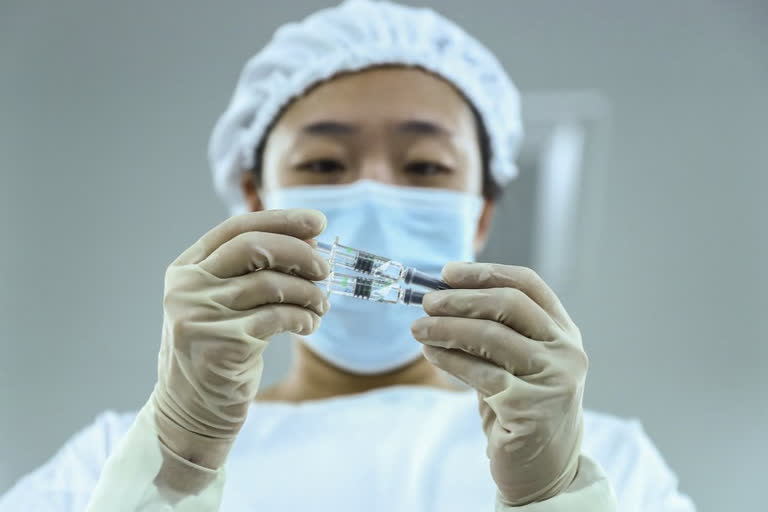Beijing: Chinese health regulators on Thursday said that they have given conditional approval to a coronavirus vaccine developed by state-owned Sinopharm.
The two-dose vaccine is the first approved for general use in China. The go-ahead comes as the country has begun to vaccinate 50 million people before the Lunar New Year holiday in February.
Conditional approval means that research is still ongoing, the company will be required to submit follow-up data as well as reports of any adverse effects after the vaccine is sold on the market, Chen Shifei, the deputy commissioner of the National Medical Products Administration, told a news conference.
The company “must continuously update the vaccine’s instructions, labels and report to the agency,” Shifei said.
The vaccine was developed by the Beijing Institute of Biological Products, a subsidiary of state-owned conglomerate Sinopharm. The company announced Wednesday that preliminary data from last-stage trials had shown it to be 79.3% effective.
It is an inactive vaccine, which means the virus was grown in a lab and then killed. The germ is then injected into the body to generate an immune response.
The final proof of its effectiveness will depend on the publication of more data.
Sinopharm is one of at least five Chinese developers that are in a global race to create vaccines for the disease that has killed more than 1.8 million people.
Also read:Trump admin's vaccine roll-out is falling behind: Biden
In addition to the emergency vaccinations already underway, China plans to start vaccinating high-risk population, such as seniors as well as people with existing chronic illnesses. Officials did not say what percentage of the population they will vaccinate in China.
“This is different in every country but the general thinking is that it has to reach 60% to protect the entire population,” said Zeng Yixin, vice-minister of the National Health Commission.
Practically, it means that the drug or product in question may be restricted for certain age groups, according to Tao Lina, a former government immunologist.
Officials declined to name a particular price and gave conflicting statements about it. “It will certainly be in the limit of what people can afford,” said Zheng Zhongwei, a National Health Commission official.
A minute later, Zeng, the other NHC official, stepped in to say that the vaccines “will definitely be free for the public.”
The vaccine is already under mass production, though officials did not answer questions about current production capacity.
Approval of China’s vaccine could also mean hope for countries around the world who may not have access to the Pfizer or Moderna shots, which have stricter cold chain requirements. Sinopharm’s vaccine is able to be stored at 2 to 8 degrees Celsius (36 to 46 degrees Fahrenheit), or a normal refrigeration temperature.
“This is very exciting that there are another vaccine and one that can be distributed in locations that don’t have the cold chain,” said Ashley St. John, an immunologist at the Duke-NUS Medical School in Singapore. “But at the same time, we have to temper the excitement. We have to understand the long term efficacy, effect on transmission and effect on a severe disease.”
(AP)
